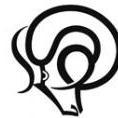There were a lot of other factors though that helped the sudden, rapid growth of soccer and indeed other field sports. Some may appear insignificant but were nonetheless vital and helped speed up the development process.
The invention of the lawnmower by Edwin Beard Budding in 1827 (patented 1830) was one such occurance, replacing the very laborious use of a Scythe and making the preparation of playing areas much easier.
Advances were also made with the actual balls used, Inflated animal bladders(usually pig), later encased by leather were most commonly used. These balls didn't keep their shape very well and bounced unpredictably. In 1855 Charles Goodyear, an American patented a method of vulcanising rubber and thereby paved the way for standardised, stable balls.
The spread of the railway network in the U.K was also important, providing a speedy and relatively cheap mode of transport to all classes of the population.
The one single factor that changed the British way of life and accelerated the changes in sport was the passing of the 1850 Factory Act which restricted the working week to 60 hours and all work had to stop at 2pm on Saturdays.
Now the working classes had free time on Saturday afternoons to spend as they pleased, which led to the traditional 3pm kick off time.
Soccer's popularity quickly gathered pace in the second half of the 18th century with new clubs being formed all around the U.K, particularly in the newly industrialised areas of The Midlands, Yorkshire and Lancashire.
Football was also developing north of the border and Queens Park formed in 1867 and Scotlands oldest club were invited to take part in the first F.A Cup competition. They were invited to take part due to withdrawals by other clubs but had to withdraw themselves due to lack of funds
Queens Park even played in the final twice in 1884 and 1887, losing both times to Blackburn Rovers (2-1 and 2-0) and were instrumental in the formation of The Scottish Football Association in 1873.They were also the winners of the first Scottish F.A.Cup final beating Clydesdale 2-0 1873/4
The Scottish F.A. barred its members from participating in The F.A. cup in 1887 and apart from a brief spell in the 1980's when Gretna opted to play in The English League system until returning to the Scottish League in 2002, no Scottish team has entered since.
The early years of the F.A. cup were dominated by the Sourthern elite clubs made up mostly of well off ex public school and university members, whereas the members of clubs in the North and Midlands were mostly poorly paid, and working class.
Although soccer was still strictly amateur, a number of clubs particularly in Lancashire were attracting the better players, including a lot from Scotland, with the offer of a job and under the counter payments. Compensation for loss of earnings while playing for a club was allowed but often abused.
The stranglehold of the Southern amateurs was loosened in 1881/2 when Blackburn Rovers reached the F.A.cup final losing 1-0 to the Old Etonians.
A programme from this match was sold by auction at Sothebys in May 2013 for £36250, a world record for a football programme.
The following season, 1882/3 saw the southern dominance finally broken when Blackburn Olympic beat Old Etonians 2-1 after extra time.
The practice of payments to their players by some northern clubs disgruntled some of the southern 'Gentlemen' and led to the expulsion of Accrington from the cup in 1883 and a years suspension for Preston in1884.
The F.A, in an attempt to assert its authority and stop the spread of professionalism, introduced many new rules including the banning of non English players.
The majority of Northern clubs were however in favour of professionalism so in October 1884 37 clubs at a meeting in Manchester broke from the F.A. and formed The British Football Association.
Fearing further mass defection to The B.F.A by more of its members the F.A. eventually gave in and legalised professionalism on 20/7/1885(thus making The B.F.A.redundant)
The Amateur Football Defense Alliance, later The Amateur Football Alliance was founded in 1907.
After the acceptance of professionalism it became necessary for clubs to arrange fixtures on a regular basis, rather than just take part in cup games and occasional friendlies, so they could pay their players.
With this in mind William McGregor, a director of Aston Villa wrote a letter to his committee and several other clubs on the 2nd of March 1888 suggesting a league competition which would provide revenue from guaranteed fixtures .
A meeting was arranged at Andertons Hotel, London for the 23rd of April 1888 (the eve of the F.A. Cup Final) This was quickly followed by a second meeting in Manchester at the Royal Hotel on 17th of April when The Football League was formally created.
No southern clubs showed any interest at this stage, so the original league membership comprised 6 teams each from The Midlands and The North. These were Accrington, Aston Villa, Blackburn Rovers, Bolton Wanderers, Burnley, Derby County, Everton, Notts County, Preston North End, Stoke, West Bromwich Albion and Wolverhampton Wanderers
The first season kicked off on the 8th of September with each team playing all the other teams twice, once home and once away, but the point system (2 points for a win or one point for a draw) wasn't agreed upon till later in the season.
Preston won the very first league competition without losing a game, and also went on to achieve the first league and cup double when they beat Wolverhampton Wanderers 3-0 in The F.A Cup Final at The Kennington Oval in front of 22000 spectators.
A second division was added in 1892 when the rival Football alliance was absorbed, with the addition of amongst others, Nottingham Forest, The Wednesday(later Sheffield Wednesday) and Newton Heath(later Manchester United)
Now the first division comprised 16 clubs and the second division had 12.
Automatic promotion and relegation was introduced in1898 replacing the previous 'test match' method of deciding who stayed up and who went down.
The Football League continued to expand over the years (this will be covered in future articles) but by 1958 there were 4 national divisions.
In 1981 3 points were awarded for a win and play offs were introduced in 1986/7 along with automatic promotion and relegation between division 4 and The Football Conference league.
In1992/3 the top 22 clubs in the Football League broke away to form The Football Premiership but reduced to 20 in 1996.
This now left a Football league membership of 72 clubs evenly split over 3 divisions-The Championship and Leagues one and two.
The Football League is the oldest such competition in the world and also organises 2 knockout cup competitions - The Football League Cup and The Football League Trophy.
The Football League Operations centre is in Preston with commercial offices in London.
Liverpool hold the record as winners of the Football League when Division One was the top flight of English football with 18 titles.
Manchester United had won the title 7 times before adding another 13 titles in The Premier League.
The next article will be a summary of events relevent to soccers development up to the end of the 19th century and Footballs first superstar.
Discuss the Series - Super Rams Articles in the Community.
Previous Article | Introduction of the F.A Cup








Recommended Comments
Create an account or sign in to comment